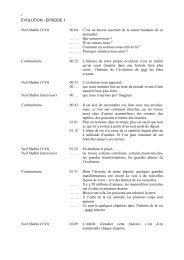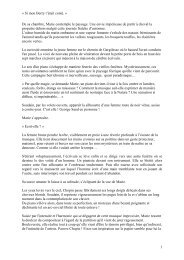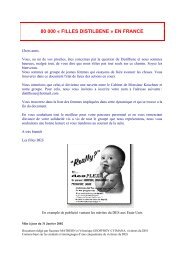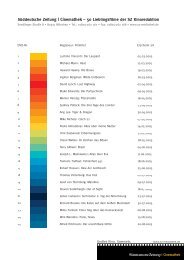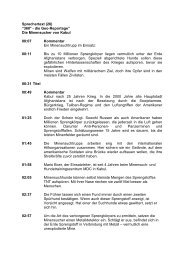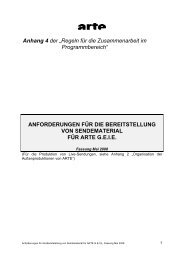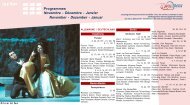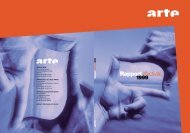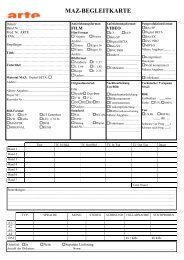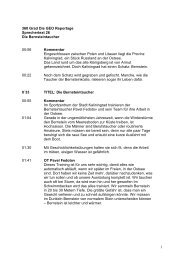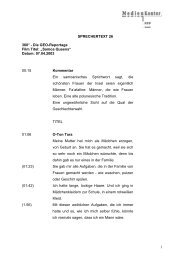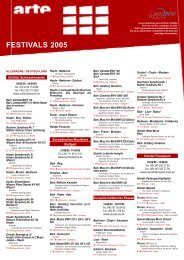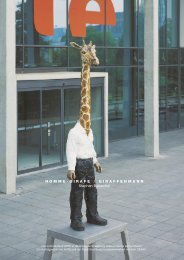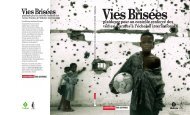POPs IN AFRICA HAZARDOUS WASTE TRADE 1980 - 2000 ... - Arte
POPs IN AFRICA HAZARDOUS WASTE TRADE 1980 - 2000 ... - Arte
POPs IN AFRICA HAZARDOUS WASTE TRADE 1980 - 2000 ... - Arte
You also want an ePaper? Increase the reach of your titles
YUMPU automatically turns print PDFs into web optimized ePapers that Google loves.
Tests run on the wastes determined that they were hazardous. In a<br />
report released August 1, Professor Ernest Wright, head of the<br />
chemistry department at the University of Sierra Leone, revealed<br />
that the wastes contained toxic wastes including ammonia,<br />
formaldehyde and carbon monoxide. Wright added that the<br />
wastes had been leaking into a nearby estuary.<br />
Sierra Leone’s Health Minister, Wiltshire Johnson, said, “people<br />
living around the site were contaminated with certain vapors<br />
which caused a fair amount of choking.” 185<br />
Scheme: Biskupek<br />
Date: 1987/90<br />
Type of Waste: Aluminium Salt Slags<br />
Origin: Hanover, Germany<br />
Exporter: Biskupek Aluminium-Schmelzwerk und Metallhandel,<br />
Hanover<br />
Pretext/Fate: Dumping<br />
Status: Rejected<br />
The Biskupek Aluminium-Schmelzwerk und Metallhandel<br />
(Aluminium Smelters and Metals Trade), based in Hanover,<br />
Germany, applied to German authorities in 1987 to be allowed to<br />
export 2.500 tonnes of aluminium salt slags to Sierra Leone. The<br />
slags are a by-product of aluminium recycling which emit toxic<br />
gases in contact with water or high humidity e.g. hydrogen<br />
sulphide, H2S.<br />
The application was rejected by the German authorities. 186<br />
Scheme: Madiva<br />
Date: 1990<br />
Type of Waste: Solid Municipal Waste<br />
Origin: USA, East Coast<br />
Exporter: US Communities / MADIVA TRUST Reg.<br />
Pretext: Waste to Energy<br />
Status: Proposed<br />
Greenpeace is in possession of an elaborated feasibility study of<br />
one “Madiva Trust Reg.” (French language). 3 million tonnes<br />
per year of solid waste were to be incinerated after generating<br />
biogas from them. The residues after incineration were to be<br />
used in road construction.<br />
Besides Sierra Leone other countries were interested in importing<br />
wastes from the United States, among them Gambia, Poland, the<br />
Philippines and one more unnamed country in Western Europe.<br />
As part of the scheme, also the “American disposal company<br />
185African Concord, July 26, 1988; Agence France Presse via BBC Monitoring Service, August 3, 1988; Reuters News Reports, July 9,10,12, 1988, August 2, 1988; West Africa,<br />
July 11, 1988.<br />
186 Documents on file with Greenpeace Germany<br />
96



